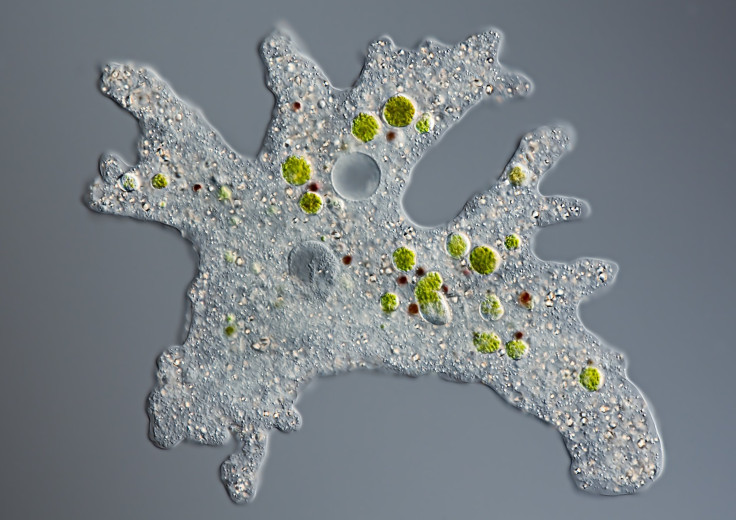Brain-Eating Amoeba In Infected Louisiana Water Deemed Safe For Drinking (Just Don’t Get It Up Your Nose)

Residents in three Louisiana towns have been advised to avoid getting water up their noses when swimming and bathing to prevent becoming infected with a deadly brain-eating amoeba, which was detected in water supplies. Although the water is now considered safe for drinking, the less than reassuring safety suggestion may lead more than a few residents to stick with bottled water for the time being.
After a water system that services 12,577 people tested positive for the brain-eating Naegleria fowleri amoeba earlier this month, officials quickly doused the reservoir with chlorine, NBC News reported. The treatment apparently made the water safe to enter the body when consumed, but entry via the nasal passage is a different story. "Residents in Reserve, Garyville, and Mt. Airy are advised to take all recommended pre-cautions to avoid having water enter their nose," St. John the Baptist Parish President Natalie Robottom explained on the Louisiana Department of Health & Hospital’s website.
The suggested precautionary steps include: Don’t let water go up your nose, don’t put your head under bathing water, and don’t let children play with water unsupervised. Residents of the affected areas are also advised to run pipes for about five minutes prior to use to ensure they are “flushed” out. "Families can take simple steps to protect themselves from exposure to this amoeba, the most important being to avoid allowing water to go up your nose while bathing or swimming in a pool," said Louisiana State Health Officer Jimmy Guidry on the public website.
The reasoning for the emphasis on nose protection stems from the amoeba’s nickname. The brain-eating amoeba attacks the brain and is only able to reach our prized organ by shooting through the nasal passage. Experts assure that drinking the deadly amoeba will do no harm. “It literally climbs through a natural conduit to the brain,” Dr. Clayton Wiley, director of the division of neuropathology at the University of Pittsburgh Medical Center told NBC News. “Once it’s in the brain, it aggressively destroys tissue. The popular term is ‘eats.’ But it’s just surviving on the biological matter in your brain at that point. It’s a bad bug.”
Although deaths from the brain-eating amoeba are rare, they are not unheard of. In the past 50 years, there have been 132 recorded cases of N. fowleri infections. Of these cases, only three patients have survived, reflecting exactly how dangerous this rare infection is. Symptoms of brain-eating amoeba infections include: severe frontal headache, fever, nausea, and vomiting. Symptoms soon escalate to: stiff neck, seizures, altered mental status, hallucination, and coma.



























